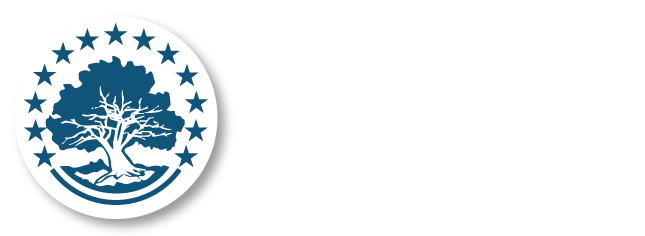The 2nd Battle of Trenton
January 2, 1777
General George Washington at Trenton, by the Assunpink Creek on the night of the battle, by John Trumbull
Following his victory against the Hessians at Trenton on December 26, George Washington and the Continental Army would return to Pennsylvania. There, after resting and recovering from the ordeal of the crossings, Washington decided to cross back into New Jersey. The British, following the shocking defeat at Trenton, had quickly abandoned their post near Bordentown and had fled to Princeton.
By December 31st, Washington’s army had reoccupied Trenton, but nearly half of the soldier’s enlistments were about to expire. Washington and his officers would, as one soldier noted, address or “harangue” the troops into reenlisting.
Washington now had a force of about 6,000 men including a considerable number of untested Pennsylvania militia. Taking a defensive position along the south side of the Assunpink Creek, Washington sent 1,000 men and 6 cannon to “Five Mile Run”, a stream just south of Maidenhead on the road to Princeton, with orders to engage and delay the expected British advance.
Early on January 2nd, Lord Cornwallis began the 11-mile march from Princeton to Trenton, leaving three regiments in Princeton. The British Army marching along and on either side of the road made slow progress due to the rain and an early thaw which quickly turned the road to mud. It would be noon before the six miles to Maidenhead had been covered.
At Five Mile Run the Americans under Colonel Hand, briefly engaged the British, and then fell back keeping up a harassing fire for about two miles until reaching the Shabakunk Creek Bridge, which they dismantled behind them. The Americans would continue to give ground slowly, falling back to a ravine called Stockton Hollow, nearly a mile from Trenton until finally they were forced to retreat through the town and over the Assunpink Creek Bridge.
As the sun began to set the enemy in a solid column with bayonets fixed and under cover of their artillery approached the narrow stone bridge. According to an American militiaman, the enemy,
…raised a shout and rushed to the charge. It was then that our men poured upon them from musketry and artillery a shower of bullets…. And as the column reached the bridge it moved slower and slower… when our fire became so destructive that they broke their ranks and fled. It was then that our army raised a shout, and such a shout I never since heard…. The British column halted instantly. The officers restored the ranks and again they rushed the bridge…. This time the column broke before it reached the centre of the bridge, and their retreat was again followed by the same hearty shout…. They returned a third time to the charge but it was in vain. We shouted after them again, but they had had enough of it.
Darkness had ended the battle and that night Washington held a council of war. Instead of engaging a superior force the next morning, he planned on making a night march to Princeton. The campfires would be kept burning by the New Jersey militia, as Washington stole off to Princeton.

